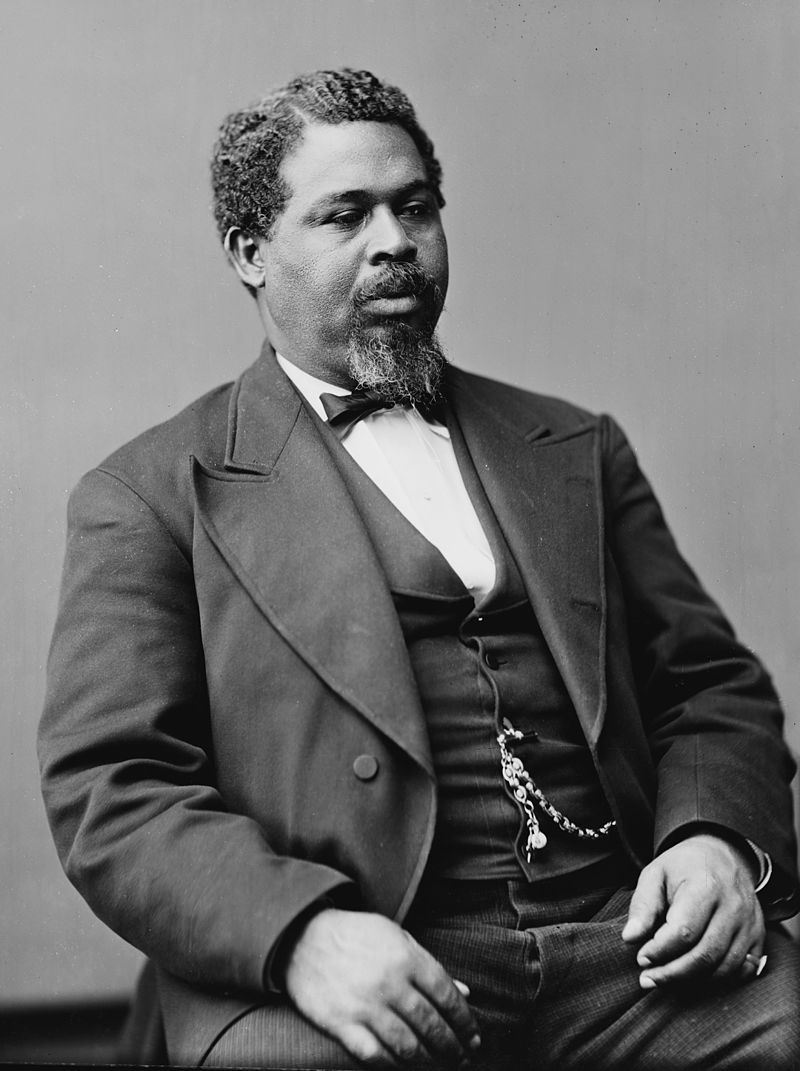|
As I said before, we wanted to talk about the famous and the not as famous figures of African American History this month. And honestly, despite getting A’s in history and all, this is a hero of our country I had never heard of until a few friends posted a meme about him and his story. And there have been attempts at making a movie about his life, but none have gotten to the screen yet, but believe me, when it does, it will be worth it to see.
Robert Small was born a slave in 1839 in South Carolina. Now, his mother was one of their owner’s favorites. She had made it from field hand to servant in the house. At first, their owners were not having Robert work in the fields or the like, but his mother asked for and was granted a chance for him to work for awhile on their fields. She wanted him to know that the life they had was not the plight of most slaves. By Age 12, he was sent as laborer for hire in Charleston where his master got 15 of every 16 dollars he earned per week. He feel in love with the ships and the seas and worked as a longshoreman, sail maker, a rigger, and even up to a wheelman. Slaves were not allowed to have the title helmsman, but that is the job he did and he became very knowledgeable about Charleston Harbor. By Age 17, he had married Hannah Jones, an enslaved hotel maid in Charleston. Together they had two children and he worked hard to try to win their freedom. But the cost was $800 per child, that’s just shy of $30,000 in 2024 money. He did manage to save an eighth of it, but was never able to reach that amount. The Civil War broke out and he was conscripted into the Confederate Navy and was assigned to the CSS Planter a military transport ship. And served the ship well, gaining the trust of the captain and free crew. On May 12th, he put a bold plan into action, freedom. The free crew and captain were going ashore and he asked for permission for the slave crew’s families to come aboard and visit them. This had been allowed before and was again, so long as they were gone by curfew. But Smalls had no intention of getting them off at curfew, they instead stole the ship with their families on board, and headed out to me the Union blockade. Along the way, they had to fool the crews of six confederate harbor forts. Smalls instructed the crew on the proper signals and he wore the captain’s uniform and did his best to mimic his movements. And the gambit paid off. The last fort figured out too late that the ship was not supposed to be there. Smalls sailed the ship out to the Union ship USS Onward, and surrendered the ship and the cargo to the Union navy. He and his crew had earned their families’ freedom and were paid a large prize for the ship, Smalls’ share alone was $1,500 (just shy of $60,000 today). And he was hailed as a hero in the north. Eventually he helped earn northern African Americans the right to serve in segregated Army units. He himself was allowed to serve in the Navy, eventually serving as a captain of a ship, and again hailed as a hero for his actions there. There was controversy about it, but he was one of the few African Americans paid a pension from their service. He learned to read and right in just nine months, and became an entrepreneur. At first offering services like education to his fellow freed men. And even ended up being given his former owner’s home and successfully fending off a lawsuit from that owner, which helped other similarly situated former slaves. He then became active, during the brief time when Reconstruction made this possible in the South in politics. He was elected to as a delegate to the South Carolina Constitutional Convention in 1868, then to the South Carolina House of Representatives. He was later appointed to and retained his seat in the South Carolina State Senate. He worked his way to delegate to the Republican National Convention, while serving in the South Carolina Militia where he rose to the rank of Major General. In 1874 he served in the US House of Representatives from 1874 to 1887. He even tried to integrate the US military in 1875, but sadly his amendment failed. He was only knocked out of politics by a conviction for taking a bribe, a charge that was later subject to a pardon as many of thos charges were made for political reasons and gains. Until the mid 20th Century he was the second longest serving African American in Congress. He was later appointed to positions by several US presidents. And while few of us have heard of him, not one, but two US ships have been named in his honor. The most recent, the USS Robert Smalls a Ticonderoga class (very capable and important cruiser) CG-62 is still in commission and protecting US aircraft carriers today. Robert finally died in 1915 at the age of 75. So, I hope we all get to watch a movie about this hero of American military and public service and that a few more people now known about an amazing American.
0 Comments
Leave a Reply. |
Archives
January 2024
Categories |
Areas of Practice |
Our Office |
Contact Information
© COPYRIGHT 2024. ALL RIGHTS RESERVED.
|




 RSS Feed
RSS Feed